NIH
-

Visualizing data on network ‘maps’
The new web application NetGestalt will allow investigators to simultaneously visualize different types of data for the same gene – such as mutation, expression and modification. Read MoreJul 25, 2013
-
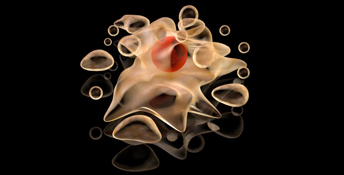
Probing roles of a cell death protein
Vanderbilt researchers have discovered new roles for a protein involved in cell death processes that are activated to prevent tumor-causing DNA mutations. Read MoreJul 17, 2013
-

Defining patient retention
Vanderbilt researchers propose guidelines for defining patient retention in clinical studies – an important parameter that affects study conclusions and program evaluations. Read MoreJul 15, 2013
-

Methods for imaging myelin loss
Certain MRI metrics can be used to assess myelin loss in multiple sclerosis, which is important for planning and monitoring therapy. Read MoreJul 12, 2013
-

New tool helps research publications stay NIH-compliant
The National Institutes of Health requires scientists to provide public access to any peer-reviewed publications resulting from NIH-supported research through PubMed, the National Library of Medicine’s premier search system. Read MoreJul 11, 2013
-

Insights on glaucoma gene mutations
Glaucoma-causing mutations in the gene for myocilin reduce secretion of the protein into the aqueous humor, suggesting a new option for treatment. Read MoreJun 26, 2013
-
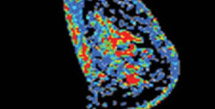
Predicting cancer’s response to therapy
Researchers are developing imaging methods to predict patient outcome early in the course of chemotherapy for breast cancer – to allow clinicians to adjust therapy for patients who are not responding. Read MoreJun 24, 2013
-

Rhythm response tied to gene variant
A genetic variant that increases risk for atrial fibrillation also impacts the response to a common therapy for the heart rhythm disorder. Read MoreJun 21, 2013
-
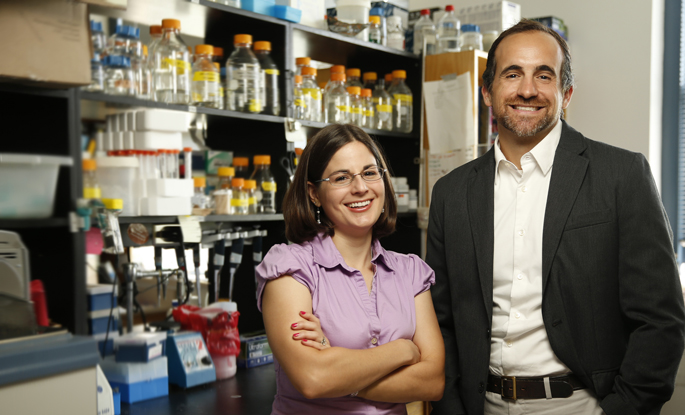
Studies outline new model for staph bone infections
Osteomyelitis, a debilitating bone infection most frequently caused by Staphylococcus aureus (“staph”) bacteria, is particularly challenging to treat. Read MoreJun 20, 2013
-

Disease linked to cell traffic jams
Diseases associated with mutations and changes in expression of the protein caveolin may result from faulty trafficking of the protein to the cell surface. Read MoreJun 20, 2013
-

Antacids: risky for premature babies
Antacids that block a certain enzyme pose a risk for a common cardiac problem in premature infants. Read MoreJun 12, 2013
-

Factor’s yin-yang tumor effects
A factor produced by most malignant cells can both promote and inhibit tumor growth – an insight that is critical to using cancer drugs developed to block this factor. Read MoreJun 10, 2013
-

Autism speeds motion perception
Children with autism spectrum disorder are better at perceiving the motion of certain objects than are typically developing children their age. Read MoreJun 7, 2013
-

Matrix member key to insulin resistance
A component of the extracellular matrix that surrounds cells plays a role in insulin resistance and may be a good therapeutic target. Read MoreJun 6, 2013
-

Salt revs stomach bug’s cancer impact
A high-salt diet worsens the carcinogenic effects of Helicobacter pylori, a bacterium that colonizes the stomachs of half of the world’s population. Read MoreMay 13, 2013
-

Profiling heart cells
A “profile” of the genes and regulatory networks that govern early heart valve development lay the groundwork for generating valves from a patient’s own cells. Read MoreMay 10, 2013
-

NIH grants bolster autism research, treatment efforts
Researchers at Vanderbilt University have received grant awards from the National Institutes of Health as part of the Autism Centers of Excellence (ACE) research program. The NIH announced grant awards of $100 million over five years to 11 centers nationwide, three of which feature projects from Vanderbilt Kennedy Center investigators, to further studies on autism treatment and intervention. Read MoreMay 9, 2013
-
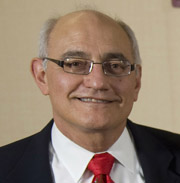
Russell’s diabetes treatment efforts honored
The Middle Tennessee Chapter of the Juvenile Diabetes Research Foundation (JDRF) has awarded Vanderbilt’s William Russell, M.D., professor of Pediatrics and director of the division of Pediatric Endocrinology and Diabetes, its highest honor — the Living and Giving Award for support of people diagnosed with type 1 diabetes (T1D). Read MoreMay 9, 2013
-
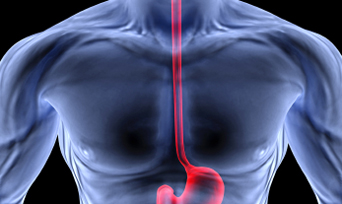
Dual-action enzyme protects esophagus
An antioxidant enzyme also functions as a tumor suppressor to limit cancer development in the esophagus. Read MoreMay 9, 2013
-

Taking the ‘noise’ out of protein data
Vanderbilt researchers have developed a novel algorithm to improve results from proteomic studies. Read MoreMay 1, 2013